Here are some of the top books recommended for Barefoot Writers, courtesy of some of the most successful writers we know:
New York Times Bestselling Author Alex Green’s Take on Which Books Every Aspiring Writer Should Have in Their Library
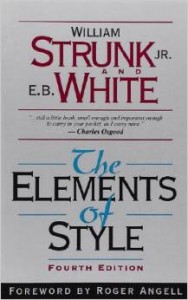 The Elements of Style by William Strunk, Jr. and E.B. White
The Elements of Style by William Strunk, Jr. and E.B. White
“A lot of people have a knack for writing, but if you don’t know the difference between the active tense and the passive tense and how important that distinction is, or how much more energetic your writing gets when you are pare out every single unnecessary word and phrase, then you really need to read The Elements of Style.
“It makes your writing so much more direct and vigorous, so you have a bigger impact on your reader. The book is probably more than 50 years old, but worth every minute you spend learning the finer points of writing.”
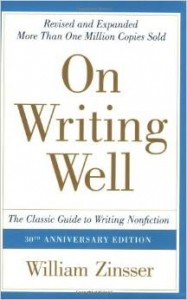 On Writing Well by William Zinsser
On Writing Well by William Zinsser
“This is another book that was really powerful to me. Again, it’s about the craft of writing. The Elements of Style has lots to do with punctuation and correct usage and so on, but On Writing Well is more about writing in a direct and engaging way. I think it’s worthwhile reading for anyone.”
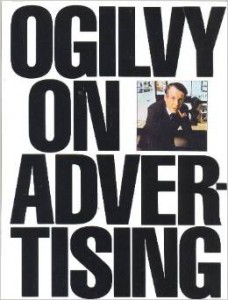 Ogilvy on Advertising by David Ogilvy
Ogilvy on Advertising by David Ogilvy
“Since we’re talking about writing copy specifically, regardless of whatever else your writing goals may be, you really should read Ogilvy on Advertising. It talks about the importance of advertising in the business world and the creative aspects of it. If you’re going to write copy, you need to learn from the masters, and David Ogilvy is certainly one of the masters. He went on to found one of the most successful advertising companies in the world.
Reading Recommendations from Successful Author-Entrepreneur Joanna Penn
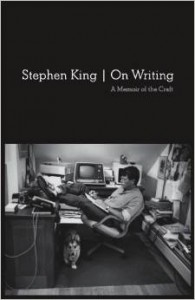 On Writing: A Memoir of the Craft by Stephen King
On Writing: A Memoir of the Craft by Stephen King
This is a must read! King is a hero of mine because he demonstrates that you can be a fantastic storyteller with compelling characters without having a master’s in Creative Writing.
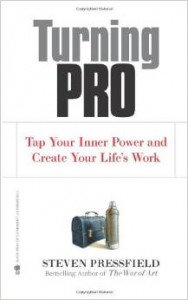 Turning Pro: Tap Your Inner Power and Create Your Life’s Work by Steven Pressfield
Turning Pro: Tap Your Inner Power and Create Your Life’s Work by Steven Pressfield
This book will kick your ass about creative habits. I have it on my desk and read it when I hit the wall.
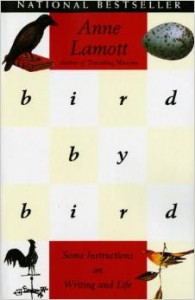 Bird by Bird: Some Instructions on Writing and Life by Anne Lamott
Bird by Bird: Some Instructions on Writing and Life by Anne Lamott
This will help you if you suffer from self-doubt (and who doesn’t!).
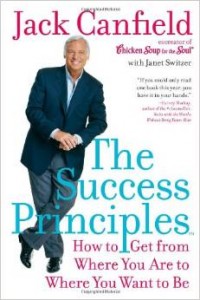 The Success Principles: How to Get from Where You Are to Where You Want to Be by Jack Canfield
The Success Principles: How to Get from Where You Are to Where You Want to Be by Jack Canfield
Although more a self-help book, this really did help me change my life. One of the first principles is “Take 100% responsibility for your life.” Until you do that, nothing will change.
Brian Clark’s Favorite Copywriting Books, for Beginning to Intermediate Copywriters
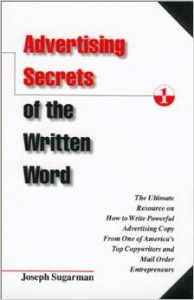 Advertising Secrets of the Written Word by Joseph Sugarman
Advertising Secrets of the Written Word by Joseph Sugarman
“I have a lot of copywriting books and courses, and if I were starting out fresh from square one today, I’d want to start here. Joe Sugarman is a direct marketing legend, and he does a great job of getting basic copywriting concepts across in an enjoyable way. So if you’re brand new to copywriting, start here.”
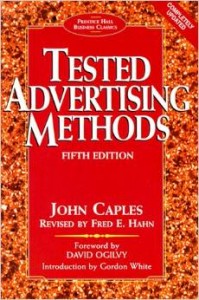 Tested Advertising Methods by John Caples
Tested Advertising Methods by John Caples
“When going back to the source of ad copy that is both audience and benefit-focused (as well as backed up by empirical testing), many will point to Claude Hopkins and Scientific Advertising from 1923. I own that book too, but my favorite ‘old school’ copywriting book is the updated version of John Caples’ Tested Advertising Methods. Timeless advice, but written in an easily-digested modern tone.”
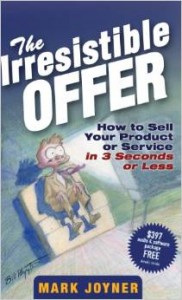 The Irresistible Offer by Mark Joyner
The Irresistible Offer by Mark Joyner
“While Marketing 2.0 pundits burn bandwidth trying to come up with clever new buzzwords to replace the word ‘marketing,’ Mark Joyner simply hands you the answers for success in the post-mass-marketing environment. While not technically a copywriting book or a product/service development treatment, it’s crucial to both. When you start with the right offer, the product and the message are identical. Then (and only then) you can ‘get out of the way’ and let your customers sell for you.”
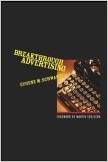 Breakthrough Advertising by Eugene Schwartz
Breakthrough Advertising by Eugene Schwartz
“Here’s the money book, courtesy of the late, great Eugene Schwartz. When you’re ready to take it to the next level, this is what just about any highly successful copywriter will tell you is the Holy Grail of deep psychological insights that lead to breakthrough marketing campaigns. The book is rare—before it was reissued by Boardroom it was listed on eBay for $900 (no joke). It comes with accompanying audio CDs that provide helpful supporting material from top copywriters who have built on Schwartz’s work.”
Recommended Reads from James Chartrand, expert copywriter and the owner of both Men with Pens and Damn Fine Words…
“I try to go off the beaten path a little bit with books. You know, everybody catches the latest, trendiest books, but there are so many other powerful books that aren’t necessarily the trendiest — and yet they’re very useful, so I appreciate that.”
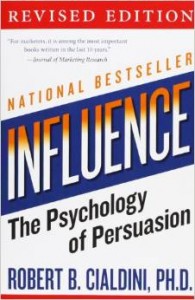 Influence: The Psychology of Persuasion by Robert Cialdini
Influence: The Psychology of Persuasion by Robert Cialdini
“The biggest book that I think every writer should have is Robert Seale Dini’s influence. It’s a very, very good book about the way people perceive pricing and sales and marketing messages.”
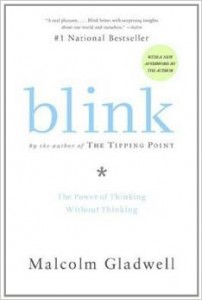 Blink: The Power of Thinking Without Thinking by Malcolm Gladwell
Blink: The Power of Thinking Without Thinking by Malcolm Gladwell
“It’s an incredibly informative book about how people think. The more you know about how people think, the more you know about how to write to them in a way that will actually make them do what you want them to do.”
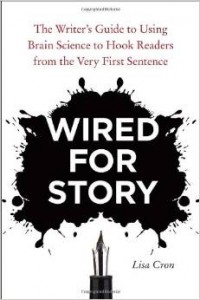 Wired for Story: The Writer’s Guide to Using Brain Science to Hook Readers from the Very First Sentence by Lisa Cron
Wired for Story: The Writer’s Guide to Using Brain Science to Hook Readers from the Very First Sentence by Lisa Cron
“It just came out and I have an early copy. It talks a lot about stories and why they’re powerful and how they work and how they capture attention. Cron wrote it for fiction audience, but if you just replace that in your mind with a business audience, you have a gold-star winner on how to write anything using storytelling.”


